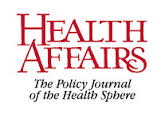Corbett Administration Announces Healthy PA MCOs
While the federal government has not yet announced whether it will approve the Corbett administration’s “Healthy Pennsylvania” Medicaid expansion plan, the administration continues to plan in anticipation of the proposal’s approval.
In May, the administration published a Request for Applications (RFA) from managed care organization interested in serving the state’s Medicaid expansion population through a private, market-driven approach to Medicaid expansion.
 Now, the administration has announced that it has approved nine insurers as potential participants and will begin negotiating with those insurers.
Now, the administration has announced that it has approved nine insurers as potential participants and will begin negotiating with those insurers.
Learn more about this latest action, including the criteria for qualifying to participate and a list of the selected insurers in the nine regions the state has established for Healthy Pennsylvania Medicaid expansion, in this news release from the governor’s office.





